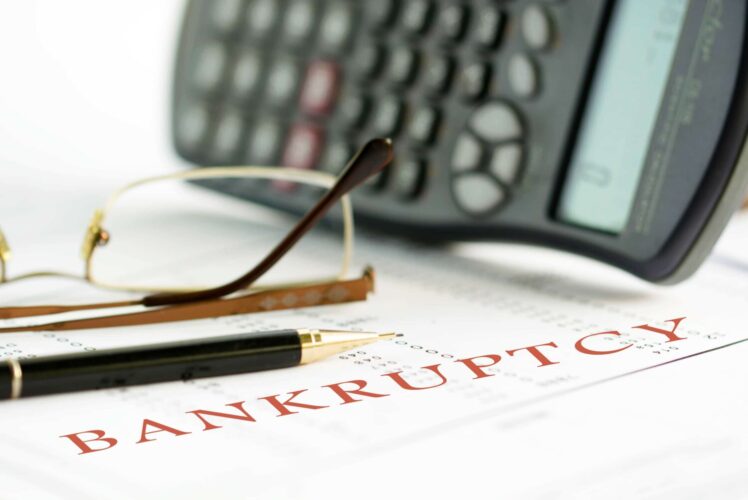
At times people need to pay more attention to their financial assets; otherwise, they incur massive amounts of debt. When this debt is so huge that it cannot be paid no matter what, the person declares bankruptcy. Bankruptcy helps the person liquidate all their assets and gets help from the court to get rid of some of the debt, and the person loses all their buildup credit score. The debt that the court clears off is cleared permanently, and the creditor cannot contact the debtor to repay the money ever again.
Anyone can declare bankruptcy which is having issues like loss of income, unaffordable mortgages, substantial medical expenses or lending money to someone beyond one’s need. For Bankruptcy credit repair, one needs to understand how bankruptcy affects the credit score and only then can one proceed for repair.
How Can Bankruptcy Affect Your Credit Score?

Source: freepik.com
Just because one declares bankruptcy doesn’t mean that they are actually bankrupt. The court or the legal body decides the bankruptcy validation and the debt amount that gets cleared. It is they who decide if the party is actually bankrupt or not and how much debt should be cleared. The score determines the credibility of the person for returning the loan. It is why when a person’s bankruptcy gets validated, their whole financial report gets affected severely.
The effect of bankruptcy is reflected in the financial report for at most ten years. When the credit is poorly affected, there is no gain in the financial report, and it can get worse with time if it doesn’t get the required attention. After bankruptcy, the person should opt for bankruptcy credit repair as soon as possible to avoid the negative impact for a long time. For some people, time doesn’t matter much, yet if you see it as a debt rising every year, you will notice that your score, the debt here, would only get worse with time without proper inspection.
How To Repair Your Credit Score After Bankruptcy?
Your financial report shows your credibility to return the loan you take, whether a personal loan or a home loan. If the report reflects a bad score, nearly all banking authorities do not prefer to give the loan. It is essential to repair your financial report after bankruptcy which can be done in two ways to avoid this scenario. One method consists of contacting a company or a firm that handles the repairing of the financial report after bankruptcy, or you could follow the steps written below to repair your financial report on your own.
● Regularly Review Your Cibil Score

Source: pinterest.com
When you check your financial report regularly, you become better familiarized with things that make up most of your credit. Knowing the significant portion of your financial report that increases your score after bankruptcy is difficult. Also, regularly reviewing your CIBIL score at least once or twice a year helps you better monitor your expenditure and credit card usage. While regular reviews, you should make sure that there are no mistakes or wrong records that could bring down your CIBIL score.
Along with that, you should also monitor how much your score is coming down and going up. It might go down by 200 points more or less initially because of the bankruptcy, but in the aftermath, wrong information can cause your score to drop even more. It usually happens when discharge information about your bank accounts isn’t notified correctly in the reports.
● Opt For A Secured Credit Card
You can get a secured credit card only on fixed deposits. You can spend only a percentage of the fixed amount you initially submitted on these cards. It is said to be one of the most important and easiest ways to improve your bad CIBIL score. You must regularly make payments that are under the limit and repay on time.
● Maintain Consistent Payments
Consistent Payments on your card bills are essential for your CIBIL score. Whether bankruptcy is declared or not, delay in consistent payment can cause the CIBIL to drop. Your payment history is responsible for at least thirty-five per cent of your CIBIL score. If you have doubts about regular payment, you can opt for the bank to deduct the amount consistently regularly.
● Reduce Your Credit Card Use And Balance

Source: youtube.com
Credit cards can help build your CIBIL score, but you must remember that a person goes into following bad monetary habits because of these cards. To avoid these habits, reduce your credit card usage and always stay within the limit. Doing both of these together would give you control over your bad habits, and you wouldn’t have to worry about being in credit debt.
● Opt For A Credit Building Loan
Credit building loans are those loans that are long-term and have long-term interest rates. A typical credit building loan is a car loan that has a shorter term duration than other loans for credit building and has regular interest instalments. Also, a car loan doesn’t have to be very big or small, makings it an easily repayable amount good for building the CIBIL score.
● Don’t Close Your Accounts
Wrong usage of credit cards can cause you to collect a debt, but that doesn’t mean that not using them at all is a good option. The credit card is a reflection of how much credit you have. Closing the previous cards would decrease the number of credits you have, directly impacting the score. No matter how many accounts you open or close, the only thing happening would be lowering your score because of the opening and closing of credit cards.
Conclusion

Source: pinterest.com
Bankruptcy is a severe issue, and it takes time for the debt situation to reach that point. Usually, building up the CIBIL score takes a lot of effort, but with bankruptcy validation, it’s even more difficult to stop the CIBIL score from getting any worse. The above steps will guide you on how to build up your credit score after taking a hit of bankruptcy.





